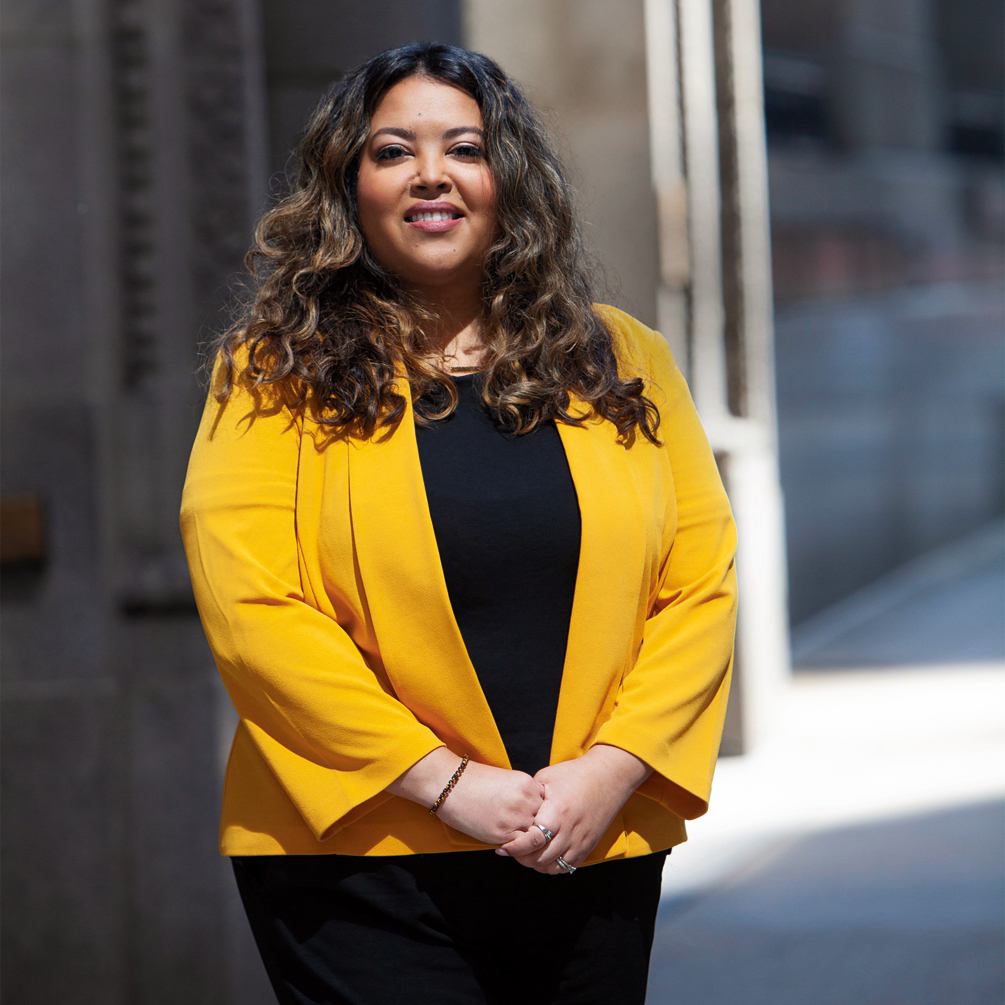ALUMNI PROFILE Nubia Willman (JD ’10)
Creating Connections for New Americans
Nubia Willman (JD ’10) represents vulnerable communities in her mayor-appointed role serving Chicago immigrants
When Chicago Mayor Lori Lightfoot appointed Nubia Willman (JD ’10) director of the city’s Office of New Americans in May 2019, she hired someone uniquely qualified for the job.
Willman, the first lawyer to hold the position, has spent her career representing and empowering some of the city’s most vulnerable residents: people affected by poverty, domestic violence, human trafficking, and employment discrimination. Today, Willman helps set immigration policies and works with city partners—including community organizations, academic institutions, and the private sector—to strengthen economic development, increase civic engagement, and protect the well-being of the city’s more than 560,000 immigrants and refugees.
“Essentially, if there is a new policy, ordinance, program, or initiative that should be created by the city to help immigrants, my job is to research the framework and logistics, and meet with community partners to ensure there is support and that it is the best solution,” Willman says. “Then, I draft a brief with an action plan for the mayor to review.”



